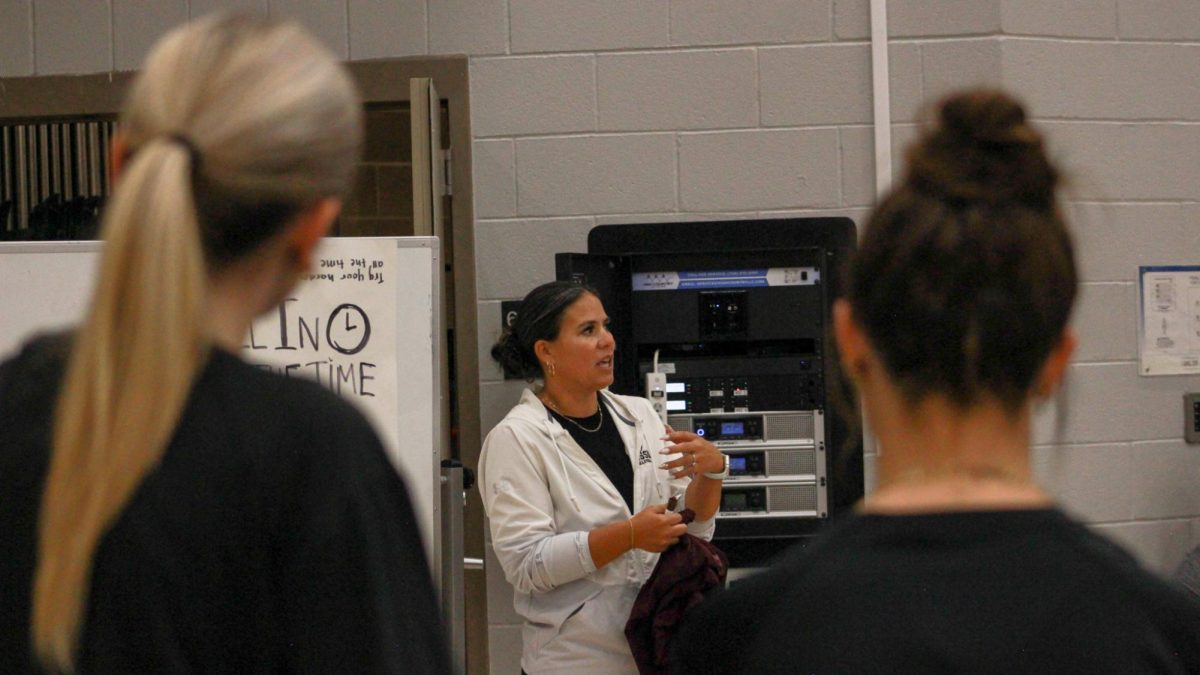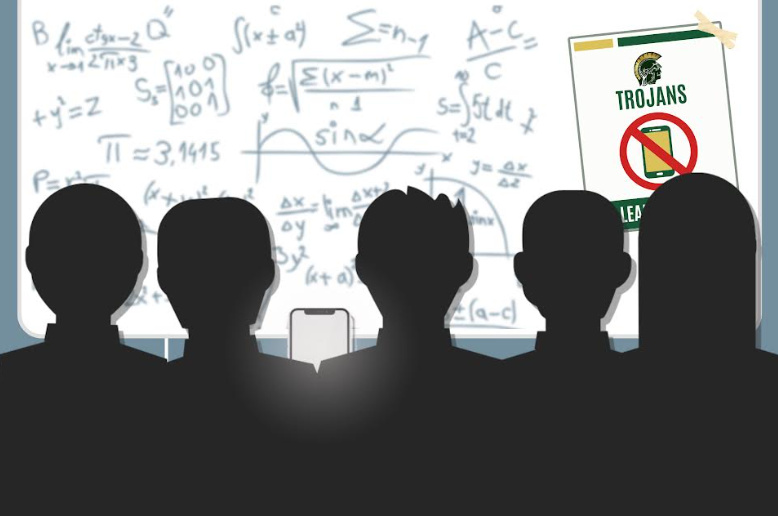Nicolas Cage’s new movie “Dream Scenario” is a high-concept think piece that is so caught up in saying something meaningful that it fails to say anything at all.
In the film, Cage plays evolutionary biology professor Paul Matthews, who mysteriously starts popping up in people’s dreams around the world, bringing him newfound fame. However, these dreams escalate into violent nightmares, and he quickly becomes one of the most hated men in the world despite the fact he can’t control his presence within them.
This summary might lead some to be sympathetic towards Matthews’ plight, but he is simply too unlikable. Not achieving the success he wanted in his career, Matthews blames others for his misfortune, taking every statement by other characters as a personal attack. When confronted by the dean over his students not showing up to his classes because of their nightmares, he dismisses their trauma as an overreaction. Eventually, he backpedals, but only after having a nightmare about himself. His retraction comes in the form of a poignant satire of YouTuber apology videos, with an abundance of tears and the claim that he is the real victim.
Most confusing is the messaging. After Matthews first appears in dreams, he enlists the help of a public relations firm to capitalize off of his new reputation and publish a book about his findings during his career. Instead, the firm suggests that he do a partnership with Sprite to insert the product into the public’s subconscious. Matthews rejects this idea, but corporations figure out how to project ads into dreams with the help of so-called “dreamfluencers” who live in a mansion together, similar to social media stars in the real world.
This is supposed to be a critique of capitalism and the way the monetization of skills crushes their user’s autonomy. This is supported by the fact that Matthews cannot control his appearance in the dreams, and later loses the ability to appear in them altogether, coinciding with the advent of the dreamfluencers. However, this critique is rendered somewhat moot considering Matthews can at no point manipulate the dreams in any meaningful way. Matthews never has any autonomy to crush. Moreover, there is no reason he gains or loses the ability. The appearance of dreamfluencers and the loss of his own dream travel is explained away as mere coincidence. Thanks to the combination of a one-dimensional protagonist and lazy writing choices, the film’s scathing argument against modern capitalism comes across as tepid at best.
When the film tries to tackle the effects on his real life, the commentary is similarly lukewarm. With Matthews the villain of global nightmares, Cage’s performance suddenly takes on a more antagonistic bent. Many in the real world are now uncomfortable with his presence and ask him to leave. He becomes indignant and refuses, resulting in increasingly violent encounters. He clings to the role of the victim, denouncing his detractors as terrorists, reminiscent of far-right rhetoric. To hammer this point home, his PR firm suggests he goes on the Joe Rogan podcast, a famous conservative commentator, to talk about being canceled. Matthews declines out of fear of being labeled controversial. His descent into defensive hostility culminates in Matthews belligerently forcing his way into an auditorium where he is not welcome, accidentally injuring another person, and losing his powers. This turn of events is handled surprisingly well, leaving us to ponder whether the step toward his violent dream persona caused his power loss.
Maddeningly, an answer is not provided. If there were one, it would require Matthews to change, something that the script is adamant he not do. He still goes on to write the book he wanted at the beginning, with only external changes. Due to his reputation, instead of a big blowout book signing, it is now just a handful of people in the basement of a French bookstore. The title, once “Dream Scenario,” has now been translated to “I am Your Nightmare.” The final scene is a revelry in misery. He lies on the floor, alone, using a new corporate bracelet designed to help enter people’s dreams. He goes into his estranged wife’s dream and laments that they cannot be together after the dream incidents, cutting to black. Although the film introduced some interesting ideas, like capitalism or cancel culture, it was more interested in complaining than producing a nuanced commentary on these issues.
There is no sense of resolution, only one of wasted time.
This story was originally published on Zephryus on December 1, 2023.





































